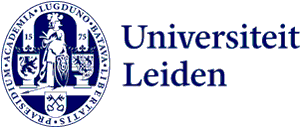66 search results for “quantum information” in the Library website
-
 Rahul Bandyopadhyay
Rahul BandyopadhyayScience
-
 Nurbolat Kenbayev
Nurbolat KenbayevScience
-
 Semonti Bhattacharyya
Semonti BhattacharyyaScience
-
 Arend-Jan Quist
Arend-Jan QuistScience
-
 Dirk Bouwmeester
Dirk BouwmeesterScience
-
 Carlo Beenakker
Carlo BeenakkerScience
-
 Tom O'Brien
Tom O'BrienScience
-
 Vasilii Bokov
Vasilii BokovScience
-
 Evert van Nieuwenburg
Evert van NieuwenburgScience
-
 Keyan Jin
Keyan JinScience
-
 Felix Frohnert
Felix FrohnertScience
-
 Vincent Croft-
Vincent Croft-Science
-
 Dunja Wackers
Dunja WackersScience
-
 Julia Cramer
Julia CramerScience
-
 Simon Marshall
Simon MarshallScience
-
 Vincent Koeman
Vincent KoemanScience
-
 Chenyu Shi
Chenyu ShiScience
-
 Arjan Blokland
Arjan BloklandFaculteit Rechtsgeleerdheid
-
 Suzan Verberne
Suzan VerberneScience
-
 Jos Damen
Jos DamenAfrika-Studiecentrum
-
 Joost Grootens
Joost GrootensFaculty of Humanities
-
Zane Kripe
Science
-
 Sanne Kellij
Sanne KellijFaculteit der Sociale Wetenschappen
-
 Mike Slootweg
Mike SlootwegScience
-
 Joon Hyung Lee
Joon Hyung LeeScience
-
 Marc Farreras I Bartra
Marc Farreras I BartraScience
-
 Tom van der Reep
Tom van der ReepScience
-
 Ton Koopman
Ton KoopmanFaculty of Humanities
-
 Berent Baris
Berent BarisScience
-
 Aernout Schmidt
Aernout SchmidtFaculteit Rechtsgeleerdheid
-
 Roosje Peeters
Roosje PeetersFaculty of Humanities
-
 Wessel Kraaij
Wessel KraaijScience
-
Evaluating information
Publishing and sharing information has become more accessible. How can you judge whether or not a publication or an internet site is trustworthy? Here you will find some useful leads to help you judge information.
-
 Anna Dawid
Anna DawidScience
-
Information literacy course
Study support
-
 Huub de Groot
Huub de GrootScience
-
Searching scholarly information
Searching for relevant scholarly information can be a challenge. These tutorials can help you navigating the catalogue and other databases.
-
Copyright Information Office
Copyright is important when writing, publishing or (re-)using academic publications. The Copyright Information Office helps Leiden University staff with copyright related questions.
-
 Yumeng Wang
Yumeng WangScience
-
 Xining Yang
Xining YangScience
-
 Stephanus Huijbregts
Stephanus HuijbregtsFaculteit der Sociale Wetenschappen
-
 Fenneke Sysling
Fenneke SyslingFaculty of Humanities
-
 Lingli Hou
Lingli HouScience
-
 Tarlach McGonagle
Tarlach McGonagleFaculteit Rechtsgeleerdheid
-
 Sowmya Marriyapillai Ravisandiran
Sowmya Marriyapillai RavisandiranScience
-
 Maarten van 't Riet
Maarten van 't RietFaculteit Rechtsgeleerdheid
-
Geographical Information Systems
Geographic information systems (GIS) are computer-based systems for editing and displaying spatial data. GIS tools allow users to create interactive queries, analyze spatial relationships, patterns or trends and visualize the output of all these efforts.
-
 Longming Shichuan
Longming ShichuanFaculty of Humanities
-
 Jenneke van der Wal
Jenneke van der WalFaculty of Humanities
-
Embed information literacy in your course
Knowing where scientific information can be found and how to use it is of great importance for getting through university. In collaboration with teachers, UBL guides students in information literacy skills: from assessing information to searching in the Special Collections and citation management.
